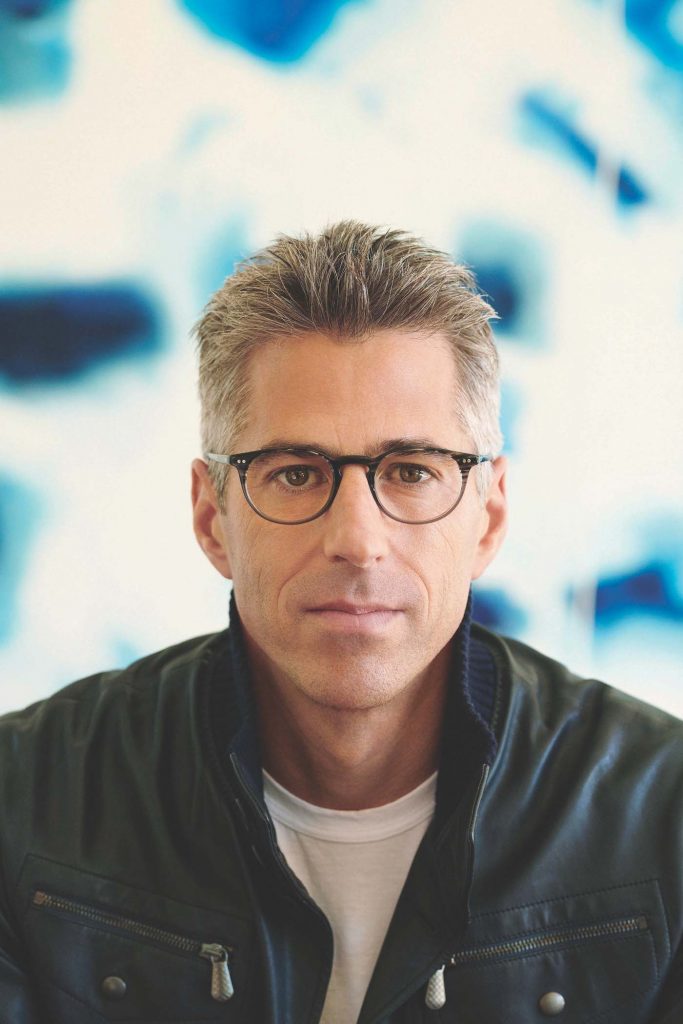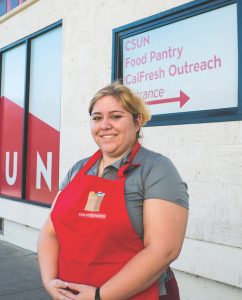A Familial Legacy of Giving Back

Casey Wasserman is firmly established as an influential civic and business leader in Los Angeles. But this mogul’s contemporary philanthropic journey is also rooted in the past, when another mogul, his grandfather, Lew Wasserman, along with his wife, Edie, modeled for him a life dedicated to giving back. The entertainment executive, sports agent, and chairperson of LA28 (2028 Summer Olympic and Paralympic Games) has a full plate these days. But Wasserman’s commitment to philanthropy, a priority learned from a lifetime of Saturday and Sunday breakfasts with Grandpa Lew until his death in 2002, remains a primary focus.
So, was Casey Wasserman’s commitment to philanthropy inherited genetically? He says no.
“My grandfather was a big believer that there’s not a giving gene. And I think he’s right, that no one is born with the innate desire to give their stuff away. Whatever that stuff is – time, resources, money, pick your attribute or your asset, if you will. Instead, he believed in teaching me the importance of giving. The importance of providing for others. The importance of being engaged, and active, and caring about others. Not just with money, but with time, and relationships, and resources. It was part of my everyday life. And I believe that’s what allowed me to have that understanding.
“My grandfather benefited from a society that was supportive and created opportunities. He benefited from a societal structure that allowed him to work his way up the system. But there are people who may not have that opportunity, who are less fortunate, who have other issues, who have other challenges. And he always said the two things we will always do is, one, happily pay our taxes and two, give away our money.”
While the Wasserman Foundation supports hundreds of nonprofit organizations each year, a significant amount of its efforts reflects Wasserman’s passion for public education.
“I believe that it is everyone’s absolute right to have access to a good education. Education is not a privilege; it is a right. And, I don’t believe you can have a successful community, city, society if you don’t have that opportunity. Take any kids from any school in some of the most economically challenged communities, under-invested-in school districts, and put them in any good school in a community that supports its system, those kids are going to do great. So, we spend a lot of time, a lot of effort, a lot of money investing in public education, and we do it almost entirely in Los Angeles, and almost entirely within the Watts community. We try to level the playing field in any and every way we can.”
According to Wasserman, one important avenue for doing that is through public-private partnerships, which he says are vital to achieving a lot of important goals.
“The one thing most big problems have in common is scale. And very rarely can an individual donor solve a scale problem. Even if a donor has near unlimited funds, the resources to execute usually exist in the public sector, not the private sector. And I think instead of looking at them as a roadblock, they should look at it as an opportunity to execute and produce better results for whatever the issue.”
Wasserman insists that you can’t make meaningful improvements in education without scale. His significant, long-term investment in the Partnership for Los Angeles Schools, co-founded by former Los Angeles Mayor Antonio Villaraigosa, supports 19 LAUSD schools in Watts, Boyle Heights, and South Los Angeles. One of the largest, in-district, public school transformation organizations in the United States, the Partnership’s model relies on sustainable solutions applied to 19 campuses that can then be scaled to improve outcomes for all students in the District. As part of his investment in the Partnership, Casey, and the Wasserman Foundation, along with 150-plus volunteers, help renovate and beautify one school per year as part of an annual Wasserman Serve Day. This year there are 21 Wasserman Serve Day projects across six countries worldwide.
Another example of Wasserman partnering with institutions is his 10-million-dollar gift to the UCLA CARES Center, dedicated to encouraging the development of resilient, emotionally healthy children. A UCLA alumnus and longtime booster, Wasserman says his impetus to fund the UCLA CARES Center came from personal experience in his family with anxiety.
“CARES is about childhood anxiety. And as we have seen, mental health is a real challenge, and a real issue for many people all over the world. And a lot of the challenges come from how to identify anxiety and answering questions such as, how do you handle childhood anxiety? There are things that can make kids with anxiety work through their challenges better. I was fortunate enough to have resources to help us through our personal issues. And, if you have resources, you can work through childhood anxiety, pretty successfully. And, if you don’t, you’ll really have a huge uphill battle in a situation that’s already unbelievably difficult and complicated.”
While public education is a big focus for Wasserman, his social impact work has many tentacles. Wasserman currently serves as the head of L.A.’s Organizing Committee for the Olympic and Paralympic Games; I wondered how this connects, if at all, with his philanthropic and social advocacy work. Turns out it does.
Wasserman was 11 years old in 1984 and remembers vividly how the Olympics dramatically changed the city he lives in and loves. So, when Mayor Eric Garcetti asked him to lead the effort to bid for the future Olympics, Wasserman happily took on the challenge.
“The Olympics and Paralympics of Los Angeles are a nonprofit. And, because it’s L.A., because of the incredible stadiums, sports facilities, and universities we have here, we will deliver the Games in a way that is truly unique,” Wasserman says. “If we do our job right, we can leave an economic and philanthropic driven legacy from hosting the Olympic and Paralympic Games that’s truly unprecedented. We’ve already committed $160 million to bring more access to sports for kids across the city of L.A. That’s the largest single investment in youth sports in any city in the history of this country. And we haven’t even had the Olympics yet. I’m proud to be in charge, and I’m proud that I’m a volunteer. And I will be incredibly proud that if we do our job right, we will leave a legacy for the community for many years to come.”
Beyond the sports legacy, Wasserman believes the Olympic and Paralympic Games are a powerful stage for anti-racism advocacy. In June 2019 Wasserman urged the International Olympic Committee to amend the guidelines that support Rule 50 of the Olympic Charter, which states that “No kind of demonstration or political, religious, or racial propaganda is permitted in any Olympic sites, venues, or other areas.”
“I don’t believe being anti-racist is political,” Wasserman insists. “The Olympic and Paralympic Games are the ultimate manifestation of representing equality and inclusion. It is the perfect platform to tell that story, and to allow athletes to tell that story. The world is coming to an awakening that’s long overdue. And, what a great opportunity for an event that has no equal in terms of scale, and reach, to show the world we can all view ourselves in the same way.”
